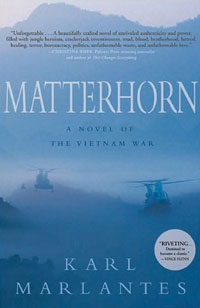What Is It Good For?

In spite of a conscientious indifference in the more reactionary and confused quarters of the American polity, that pesky Vietnam thing still lingers in the ether, foreshadowing and resonating and doing everything except fading into the obscurity Americans generally ignore known as history. Fortunately, or inshallah, the history has been written, and (callous) disregard is a fool’s gambit.
While I have no great, novel insight into the U.S.A.’s dirty little war, I do believe it was the opening salvo in the movement to desensitize Americans to the horrors of war. Or else how is it that in the past two decades (this does not include unlegislated incursions and operations, like Iran-Contra, Sudan, Panama, Grenada) the U.S. has engaged in three authorized (by the legislative branch) wars, whose duration extends past the last total war, World War II, and citizens appear to accept that circumstance, and whatever double-speak is broadcast from various press offices—though admittedly it is difficult to register protests when one is being marginalized in a multitude of other ways.
OK, OK, I got a bit overheated—such are the feelings and thoughts Vietnam looses, and reading and having to consider Karl Marlantes’s Matterhorn:A Novel of the Vietnam War (Atlantic Monthly) did bring me to a pathological fervor. Before his moment in the sun passes you will no doubt be sick of Marlantes’s back story—of which his tour in Vietnam as a decorated Marine officer is the only part I believe is relevant.
There is, I suppose, a canon of American war fiction (Red Badge of Courage, Farewell to Arms, The Naked and the Dead, The Thin Red Line, Catch 22, Things They Carry, and so on) to which I suppose this well-written and poignant depiction of men in battle will invite comparison and confabulating—which would mediate the visceral impact (and immediacy) of Matterhorn’s montage of brutality and horror.
Matterhorn’s protagonist is a Princeton-educated Marine lieutenant, Waino Mellas, whose ambitions and preconceptions evaporate quickly as he is presented with the only viable imperative in the hellish combat zone of Vietnam—try to survive another day.
Suffice it to say, Marlentes nails it.
